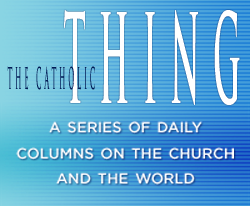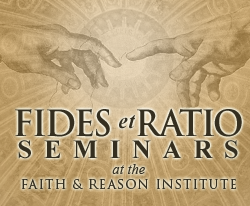A Great Recent Ancestor
young man and woman were walking in Paris’s Jardin des Plantes in the summer of 1901. And contemplating suicide. It wasn’t romantic despair. They were in love and wanted to live. But as science students at the Sorbonne, they were taught that the world was without meaning, other than the arbitrary order that, scientists believed, had – randomly, somehow – come to be. Such a world seemed intolerable. They wanted something more, something that would give meaning and nobility and purpose to love and life.
The young man was Jacques Maritain, later the most influential Catholic philosopher of the twentieth century. (Friday was the fiftieth anniversary of his death.) The woman was Raïssa Oumançoff, Russian and Jewish, who after their conversion (via the novelist and certifiable madman Léon Bloy) became a poet and mystical writer. The world always tries to avoid – or at least postpone answering – the question they faced head-on. Ultimately that’s impossible, as even the modern existentialists knew quite well: It’s God or nothingness.
For us a century later, entangled in age-old questions in new-age forms, the Maritains are helpful ancestors: near enough for a sense of continuity, and different enough to show how the great tradition can revive and blossom even in the most unpromising circumstances.
Many Catholics, who should know better, disparage the Neo-Thomism that Maritain and others helped to advance in the first half of the twentieth century. Usually, because they favor the subsequent personalist and communitarian nouvelle théologie and its developments in figures like Karol Wojtyla and Joseph Ratzinger. But this is to create a division within the polyphony of Catholic tradition where there need not be one, especially decades later when we need what both currents can give us.



